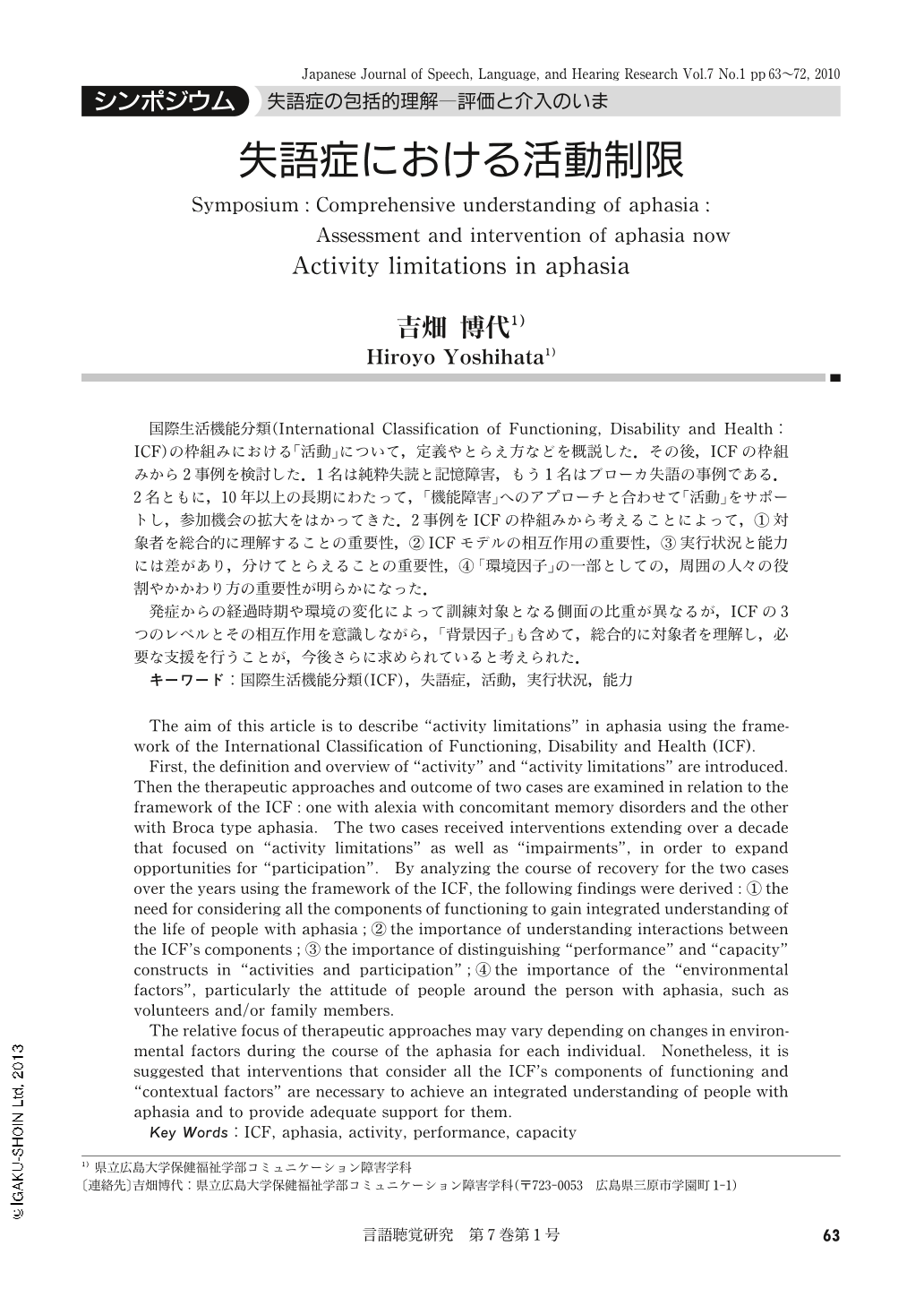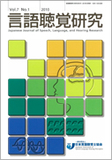Japanese
English
- 有料閲覧
- Abstract 文献概要
- 1ページ目 Look Inside
- 参考文献 Reference
国際生活機能分類(International Classification of Functioning, Disability and Health:ICF)の枠組みにおける「活動」について,定義やとらえ方などを概説した.その後,ICFの枠組みから2事例を検討した.1名は純粋失読と記憶障害,もう1名はブローカ失語の事例である.2名ともに,10年以上の長期にわたって,「機能障害」へのアプローチと合わせて「活動」をサポートし,参加機会の拡大をはかってきた.2事例をICFの枠組みから考えることによって,①対象者を総合的に理解することの重要性,②ICFモデルの相互作用の重要性,③実行状況と能力には差があり,分けてとらえることの重要性,④「環境因子」の一部としての,周囲の人々の役割やかかわり方の重要性が明らかになった.
発症からの経過時期や環境の変化によって訓練対象となる側面の比重が異なるが,ICFの3つのレベルとその相互作用を意識しながら,「背景因子」も含めて,総合的に対象者を理解し,必要な支援を行うことが,今後さらに求められていると考えられた.
The aim of this article is to describe "activity limitations" in aphasia using the framework of the International Classification of Functioning, Disability and Health (ICF).
First, the definition and overview of "activity" and "activity limitations" are introduced. Then the therapeutic approaches and outcome of two cases are examined in relation to the framework of the ICF: one with alexia with concomitant memory disorders and the other with Broca type aphasia. The two cases received interventions extending over a decade that focused on "activity limitations" as well as "impairments", in order to expand opportunities for "participation". By analyzing the course of recovery for the two cases over the years using the framework of the ICF, the following findings were derived: ①the need for considering all the components of functioning to gain integrated understanding of the life of people with aphasia; ②the importance of understanding interactions between the ICF's components; ③the importance of distinguishing "performance" and "capacity" constructs in "activities and participation"; ④the importance of the "environmental factors", particularly the attitude of people around the person with aphasia, such as volunteers and/or family members.
The relative focus of therapeutic approaches may vary depending on changes in environmental factors during the course of the aphasia for each individual. Nonetheless, it is suggested that interventions that consider all the ICF's components of functioning and "contextual factors" are necessary to achieve an integrated understanding of people with aphasia and to provide adequate support for them.

Copyright © 2010, Japanese Association of Speech-Language-Hearing Therapists. All rights reserved.


